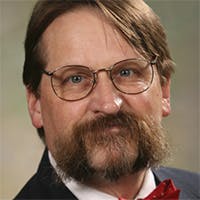Nuclear events on the world stage give me an unsettling feeling of dread. It's not so much signs of approaching conflict (although there's that, too) but what worries me are indications that potential adversaries are operating in separate realities.
U.S. President Barack Obama is making plans to visit the Japanese city of Hiroshima, site of the world's first nuclear attack, and one of two atomic bombing missions that ended World War II. The trip itself is the kind of thing a president in his last year in office ought to do; yet it's the visit's role in Obama's stated goal of global nuclear disarmament that's keeping me up at night.
Is the notion of global nuclear disarmament a worthy goal? Maybe, and maybe not. Moreover, one country on its own can't pursue nuclear disarmament when plenty of other nations that have the Bomb. There's too much at stake in the global nuclear chess game, and one power that walks away from the table could encourage others into nuclear mischief, or worse.
Obama authored a column in The Washington Post headlined "How we can make our vision of a world without nuclear weapons a reality." It outlines the president's plan "to strive for our vision of the world as it ought to be," without nuclear weapons.
Maybe that's not such a bad idea; yet, at the same time, I have seen other recent headlines that read, "Russia to test unstoppable 'Satan 2' stealth nuke capable of wiping out an entire nation," "China scrambles fighters as U.S. sails warship near Chinese-claimed reef," and "Russian army to start taking deliveries of next-generation battle tank that outguns M1 Abrams."
Here's the point: The world's a dangerous place, powerful U.S. adversaries are arming with the latest nuclear and conventional weapons, Iran is close to developing a nuclear bomb (if it doesn't have one already), and North Korea is moving forward to develop submarine-launched ballistic missiles capable of delivering nuclear warheads virtually anywhere.
The world is less stable than it's been since the Cuban Missile Crisis of 1962, and our president is talking about nuclear disarmament. If Obama thinks the U.S. can disarm unilaterally and the rest of the world will fall into line, he's sadly mistaken. On the face of it, I shouldn't criticize Obama for his desire to rid the world of nuclear weapons. He begins his Washington Post column with the words, "Of all the threats to global security and peace, the most dangerous is the proliferation and potential use of nuclear weapons."
Who would disagree? At the same time, one could argue that the very existence of nuclear weapons over the past 70 years has prevented the kinds of global conflagrations we saw in World War I and World War II. Have the nuclear weapons we so fear kept the world in check for more than half a century? What happens if we get rid of all nuclear weapons? Would the world truly be a better place? On the contrary, I believe a world without nuclear weapons would make global warfare far more likely.
The U.S. dropped nuclear bombs on two Japanese cities in August 1945. While these acts ended WWII and compelled the Empire of Japan to surrender, they did more than that. The first half of the 20th Century saw two of the world's largest and bloodiest wars precisely for the reason that starting a world war was conceivable. After those atomic bombs fell, that notion flipped; it became inconceivable for a country to start a world war because it would mean national suicide. With the nuclear attacks on Hiroshima and Nagasaki, the U.S announced to the world that war on a global scale was finished. No more.
With the president's upcoming trip to Hiroshima in mind, I'd hate to see him apologize for that. Maybe ridding the world of nuclear weapons isn't such a simple thing after all.

John Keller | Editor
John Keller is editor-in-chief of Military & Aerospace Electronics magazine, which provides extensive coverage and analysis of enabling electronic and optoelectronic technologies in military, space, and commercial aviation applications. A member of the Military & Aerospace Electronics staff since the magazine's founding in 1989, Mr. Keller took over as chief editor in 1995.

